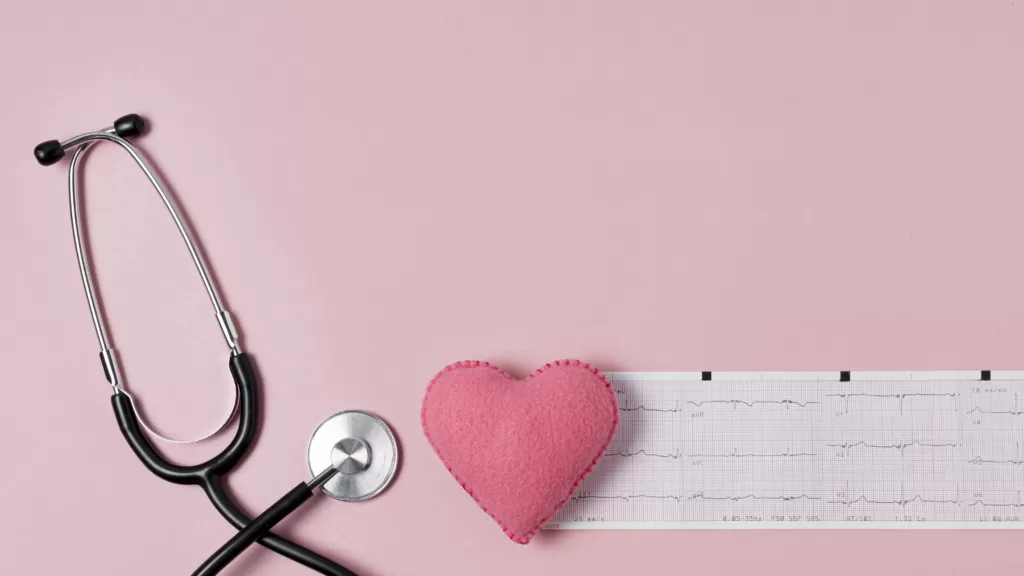
Each era introduces fresh health obstacles, and routine health screenings play a crucial role in identifying issues at an early stage. Many individuals face health screenings with hesitancy, as it is seldom considered an enjoyable experience. Indeed, it is not anyone’s idea of a pleasant time. In fact, numerous individuals seize any chance to delay or entirely evade them, harboring thoughts such as:
I’d rather not know. Better to just live my life.
What’s the point? It’s just a waste of time and money.
It’s so inconvenient. I would rather be doing something else.
Why We Should Go For Health Screenings?

Image via Freepik
In this context, Dr. Muralitharan Ganesalingam, who serves as the Head of the Department of Obstetrics and Gynaecology at the School of Medicine, International Medical University (IMU), and works as a Consultant Obstetrician and Gynaecologist at IMU Healthcare, provides insights into prevalent misconceptions.
Additionally, he offers practical guidance regarding health screenings and the appropriate timing to commence them.
1. I feel fine; why should I go for a health screening?

The goal of screening tests is to detect changes in the body before they become unmanageable. In this way, you have the chance to modify your lifestyle and steer away from a particular illness.
Dr. Muralitharan Ganesalingam, Head of Department, Obstetrics and Gynaecology, School of Medicine, International Medical University (IMU) and Consultant Obstetrician and Gynaecologist at IMU Healthcare
Simply put, this implies that we should undergo health screenings when we are in good health regardless of gender, men or women!
2. Fine. So when should I start going for health screenings?

Image via Freepik
Our bodies undergo a natural aging process, and the objective is to age in a healthy manner. Typically, women in the 19-24 age range are considered to be in peak health. Beyond the age of 25, the accumulation of fat, especially in the hips, thighs, and abdomen, takes place, accompanied by a decline in muscle mass. At the age of 35, there is a yearly depletion of bone mass at a rate of 0.5-1%, according to Dr. Murali.
While individual experiences may vary, these are inherent changes. Dr. Murali recommends annual screenings from early adulthood, such as when entering the workforce, and twice a year after reaching the age of 45.
3. There are so many different types of tests! Which screening tests should I prioritize?

Image via Go Red For Women
Non-communicable diseases such as diabetes, hypertension (high blood pressure), and high cholesterol have been increasing steadily. As a result, Dr. Murali recommends initiating annual health screenings for all healthy adults with:
- Blood pressure to check for hypertension. This disease, known as the silent killer as it progresses without noticeable symptoms, affects 3 in 10 Malaysians, approximately 6.4 million people, and increases the risk of stroke and heart attack.
- Blood count to detect conditions like anemia. On average, anemia affects 3 in 10 women aged 15-49 years and can cause complications during pregnancy such as miscarriage and premature birth
- Blood glucose test to check for diabetes. Approximately 1 in 5 adults have diabetes, equivalent to 3.9 million adults.
- Body Mass Index (BMI) to monitor weight gain and help prevent obesity. National statistics show that 1 in 2 adults are overweight or obese, and 1 in 2 have abdominal obesity, of which women accounted for 54.7% and 64.8% respectively.
- Lipids test to check for elevated levels of cholesterol, which can lead to heart disease. Around 4 in 10 Malaysians, approximately 8 million people, have raised cholesterol levels, with women being more likely to have higher levels than men. In spite of this, 1 in 4 people are unaware they have high cholesterol.
- Kidney function and liver profile as chronic kidney disease affects 1 in 7 Malaysians, and diabetes is a significant risk factor.
As you grow older, Dr. Murali also advises undergoing yearly eye examinations, hearing assessments, and dental examinations.
4. What about tests specifically for women?

Image via PHN
Certain health screenings are especially crucial for women, including Pap smears for cervical cancer, breast examinations for breast cancer, and bone mineral density scans to identify osteoporosis.
- Cervical Cancer
One of the specific diseases we look for as women grow older is cervical cancer. Historically, cervical cancer used to be one of the dominant cancers in women, with 500,000 new cases a year worldwide and 250,000 deaths. But because we have an efficient screening programme through the use of Pap smears, we have been able to reduce the incidence of cervical cancer substantially. It is the most significant advancement in the control of cancer, hence annual screening for cervical cancer is something I emphatically encourage.
Dr Muralitharan Ganesalingam, Head of Department, Obstetrics and Gynaecology, School of Medicine, International Medical University (IMU) and Consultant Obstetrician and Gynaecologist at IMU Healthcare.
Pap smears entail obtaining a tiny tissue sample from the cervix to examine for any abnormalities or alterations indicative of cervical cancer. Despite its effectiveness as a screening test, a recent study revealed that merely 45% of women in Malaysia have undergone a Pap smear, according to him.
- Breast Cancer
Breast cancer continues to be the most prevalent cancer among women in Malaysia. Recent estimates indicate that 1 in 20 women will develop breast cancer, leading to a minimum of 9 daily fatalities from the disease. That is why health screenings is very important for women. Despite these alarming statistics, only half of women aged 18 and above do not engage in breast self-examinations, and merely a quarter of women above 40 have undergone a mammogram.
Given the high treatability of breast cancer in its early stages, it is crucial for all women to consistently conduct self-examinations and undergo an annual check by a doctor who can determine the necessity of a mammogram.
- Osteoporosis
Ultimately, as bone mineral density diminishes with age, raising the susceptibility to fractures, health screenings is recommended for postmenopausal women aged 50 and above. For individuals aged 65 and older, screening should occur at least once annually in accordance with Malaysian guidelines.
5. What do doctors mean when they say ‘high-risk’?

Certain factors, such as family history and lifestyle choices, can elevate the likelihood of developing specific health issues, clarified Dr. Murali.
Elements that may necessitate more frequent screening include advancing age, a family history of health problems, elevated stress levels, and lifestyle habits such as smoking, alcohol consumption, and engaging in multiple sexual partnerships.
Additionally, he warned that the repercussions of lifestyle choices typically manifest later in life, emphasizing that chronic stress, whether from work, family, or financial circumstances, poses a significant threat to health.
Final Words Of Advice
Recognizing the increasing seriousness with which individuals approach health screenings, it’s essential to exercise caution, as unnecessary testing can result in anxiety.
Dr. Murali highlights the example of yearly mammograms, pointing out that up to 50% may show abnormal findings, but not all of these cases are cancerous. Consequently, he advises that screening tests should only be pursued if they are necessary and contribute to improved health.
Ultimately, engaging in a conversation with your primary healthcare provider is crucial. Discuss any health concerns and determine the screenings that may be beneficial for you, taking into account factors such as age, lifestyle, and family history.










